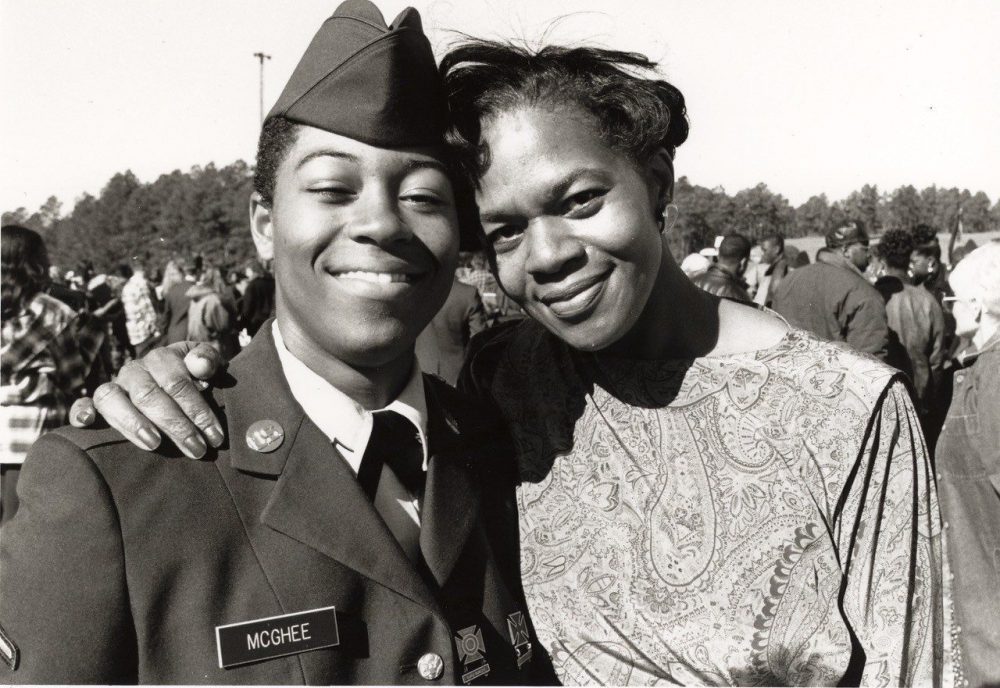The year was 1994. The place was Washington D.C. “Don’t Ask Don’t Tell” was in full swing and LaShawn McGhee had just joined the United States Army.
While open about her sexuality prior to joining the Army, she knew that–once inside–this was something rarely discussed or even privately shared.
“In the Army, you have friends that you know are privately queer–and others that are deep in the closet–but either way, nobody talked about it,” she says. In addition, McGhee says that queer people were often forced to painstakingly avoid pronouns when speaking of their personal lives. “Instead of saying ‘I’m seeing her’, we would say ‘I’m seeing them.’ Anything to de-genderize the conversation.”
Despite these challenges, LaShawn remained in the Army for nearly 9 years, including serving as a nurse during the second Iraq War and Afghanistan. In this role, she covered all departments including MICU, General Surgery, Recovery Room and Orthopedics. “I worked at the original Walter Reed Hospital when Jessica Lynch and Shoshanna Johnson, the first female POW’s, came back home,” shared McGhee. “It was an honor to help Jessica during her recovery.”
Once out of the Army, LaShawn had a newfound sense of identity–and drive.
Making a 180-degree turn, LaShawn decided to go back to school and dedicate herself to the art of storytelling by graduating from The American Film Institute (AFI) with a master’s degree in film editing.
Since graduating, LaShawn has worked on award-winning film, television, and documentary projects as an editor, assistant editor, and producer. Previously involved in Ava Duvernay’s ARRAY film movement–and a regular juror and panelist at events such as Outfest and the American Film Market (AFM)–LaShawn brings her experience of working on feature films (Selma, The Leisure Class) and broadcast television (Girl Rising, A Chance to Dance) to her work today as one of the four equal Co-Founders and the Chief Product Officer at the largest queer TV network in the world, Revry.
“I learned compassion and the need to advocate in the Army, and now I’m getting to use that unique skillset in a completely different way. While I help to run an entertainment network, at its core, Revry is about showing queer people that they exist, and they are valid. Because queer erasure is a real thing, this representation literal saves lives. In a strange way, I’m back as a nurse in the Army with the responsibility of having someone’s life in your care. This is my duty apparently.”
This Veteran’s Day is a day of reflection and memories for LaShawn.
She is grateful to have helped soldiers get back on their feet after being wounded in war.
Today, Veteran’s Day means more to her than ever, as she also feels we are battling for the soul of this country including witnessing the dismantling of democracy and fighting for justice for communities of color.
“I feel a certain sense of pride in participating in democracy, I don’t take it for granted. If a person is interested in being in the military, then they shouldn’t let anything stop them from doing it – whoever you are. I love the Army’s overall value of protecting people, that is what it is about. The United States’ impact on the world is so great –we are the facilitators of the right to have justice, basic human and civil rights. I’m grateful to champion for this for our LGBTQ+ family, too.”
